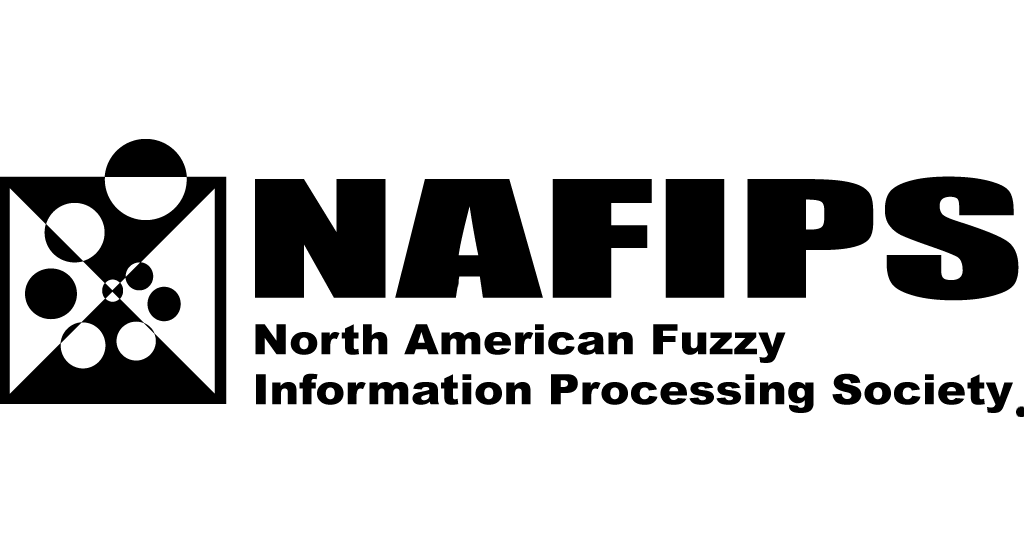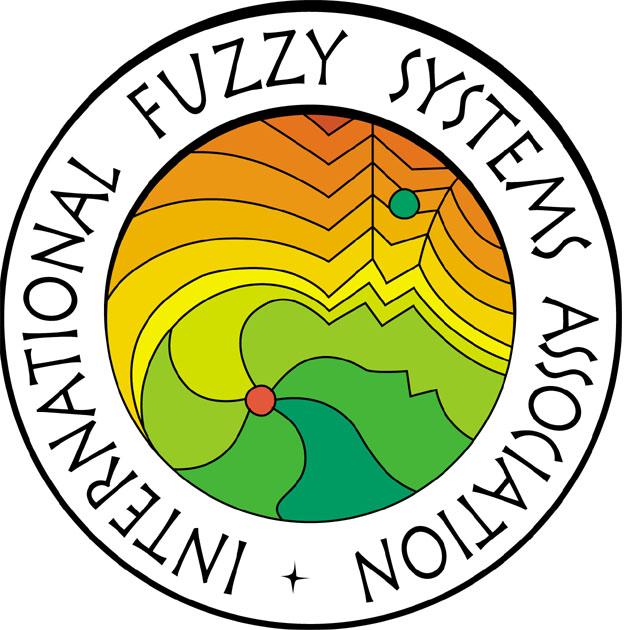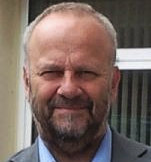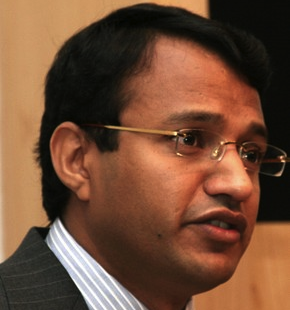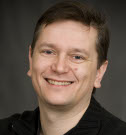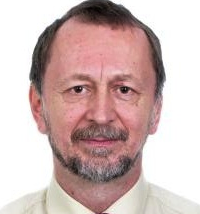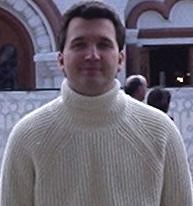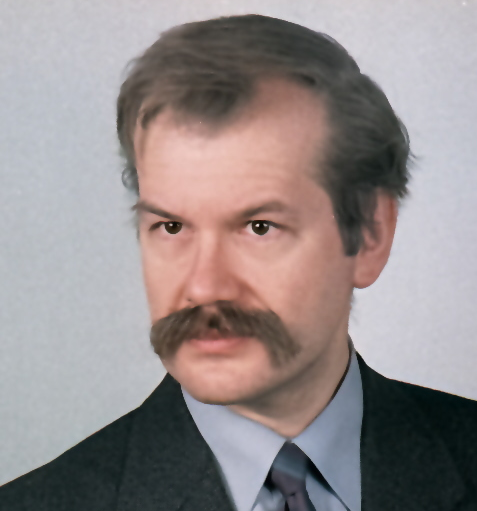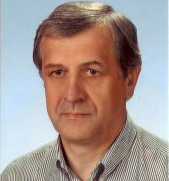Proposals for Focus Sessions aiming at fundamentals, algorithms, and innovative applications of fuzzy sets and soft computing are welcome. Submission of proposals should include a short description of the session, its relevance to the IFSA-NAFIPS Joint Congress, and a list of potential contributors. Focus sessions will be open to all participants. Organizers of Focus Sessions will be responsible for a reviewing process.
Fuzzy Logic and Semantic Web
| The Semantic Web represents the new frontier of knowledge gathering where machines become aware of the new potential offered by the global sharing of information, through powerful techniques which promise knowledge-based management and retrieval instead of mere syntactic data exchange.
Recent trends stress the strong demand of promising techniques for obtaining semantic interoperability and reasoning over metadata and ontologies, that take into account the actual nature of human representation as well as real world knowledge representation. In complex and changing environments such as the Semantic Web, the representation of uncertainty needs to be on a fairly low level of semantic standards in order to guarantee a seamless infrastructure that naturally process different forms of imperfect knowledge, such as incompleteness, imprecision, fuzziness, vagueness.
|
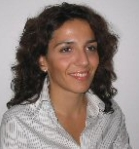 Sabrina Senatore
Sabrina Senatore
|
 Vincenzo Loia
Vincenzo Loia
|
|
It is clear the exigency of web applications and services that model uncertainty and reasoning reflecting the real word representation by means of unambiguous and concise coding and, at the same time, capture the terminological knowledge which sometimes embed imprecise information, not easy to code by traditional dichotomy-based logical methods.
This Special Session aims at providing contributions about approaches, methodologies, tools that achieves a seamless integration of fuzzy techniques and Semantic Web methodologies, technologies and applications in order to evidence the effective benefits and improvements in the synergistic solutions. We invite original contributions that provide novel solutions to challenging problems, addressing theoretical or practical solutions in Semantic Web domain by means of Fuzzy Logic–based techniques.
Topics of interest includes but are limited to:
Reasoning and the Semantic Web (RDF, OWL, Logic Programming, Description Logics); Fuzzy inference systems; Fuzzy ontologies; Ontology-Based Information Extraction and Retrieval; Ontology matching; Web Information Extraction and Retrieval; Fuzzy Semantic Web Services; Social networks; Recommender systems in Semantic Web; Lessons learnt in representation of fuzziness in ontologies; Opinion Mining and Sentiment Analysis; Text Mining and Web Content Mining.
|
|
Contact: Vincenzo Loia (loia 'at' unisa.it), Sabrina Senatore (ssenatore 'at' unisa.it)
|
back
Hybrid Intelligent Systems
| This Session will focus on the prudent combination of different Soft Computing (SC) methodologies for the development of powerful hybrid intelligent systems for modeling, simulation and control of non-linear dynamical systems. Special attention should be given to the metrics used to compare SC techniques with conventional ones. Developments of innovative hybrid methods combining different SC techniques and conventional techniques to solve problems related to modeling, simulation and control of non-linear dynamical systems would also be considered. The Special Session will include applications in the following areas: Robotic Dynamic Systems, Non-linear Plants, Pattern recognition, Manufacturing Systems, and Time Series Prediction.
|
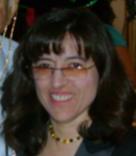 Prof. Patricia Melin
Prof. Patricia Melin
www.hafsamx.org/melin
|
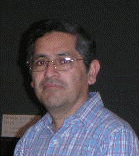 Prof. Oscar Castillo
Prof. Oscar Castillo
www.hafsamx.org/castillo
|
|
Contact: Prof. Oscar Castillo (ocastillo 'at' tectijuana.mx), Prof. Patricia Melin (pmelin 'at' tectijuana.mx)
|
back
Optimization under Flexibility and Generalized Uncertainty
Session in Honor and the Memory of Professor Hideo Tanaka
Flexible optimization (fuzzy optimization) and generalized uncertainty optimization are relatively new methods developed over the last 40 years. Their usefulness has not yet been fully exploited, but are at the core of what should be applied. We will explore the contributions of Professor Hideo Tanaka, deceased 2012, who, with his colleagues and students were the first to operationalize the Bellman/Zadeh approach to fuzzy optimization.
The organizers are looking for talks that will:
1) Highlight the contributions of Professor Hideo Tanaka to fuzzy optimization
2) Survey the state of the art in flexible (fuzzy) and generalized uncertainty (possibilistic) optimization
3) Present new results in flexible (fuzzy) and generalized uncertainty (possibilistic) optimization
4) Present any interesting applications of flexible (fuzzy) and generalized uncertainty (possibilistic) optimization
5) Extend current algorithms for solving numerically problems in the area of flexible (fuzzy) and generalized uncertainty (possibilistic) optimization.
|
 Weldon A. Lodwick
Weldon A. Lodwick
http://math.ucdenver.edu/
~wlodwick
|
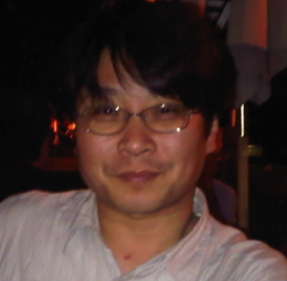 Masahiro Inuiguchi
Masahiro Inuiguchi
|
|
Contact: Masahiro Inuiguchi (inuiguti 'at' sys.es.osaka-u.ac.jp), Weldon A. Lodwick (Weldon.Lodwick 'at' ucdenver.edu)
|
back
Inter-Relation Between Interval and Fuzzy Techniques
| The relation between fuzzy and interval techniques
is well known; e.g., due to the fact that a fuzzy number can be
represented as a nested family of intervals (alpha-cuts),
level-by-level interval techniques are often used to process
fuzzy data.
At present, researchers in fuzzy data processing mainly used
interval techniques originally designed for non-fuzzy
applications, techniques which are often taken from textbooks
and are, therefore, already outperformed by more recent and
more efficient methods.
One of the main objectives of the proposed special session is
to make the fuzzy community at-large better acquainted with the
latest, most efficient interval techniques, especially with
techniques specifically developed for solving fuzzy-related
problems.
Another objective is to combine fuzzy and interval techniques,
so that we will be able to use the combined techniques in
(frequent) practical situations where both types of uncertainty
are present: for example, when some quantities are known with
interval uncertainty (e.g., coming from measurements), while
other quantities are known with fuzzy uncertainty (coming from
expert estimates).
|
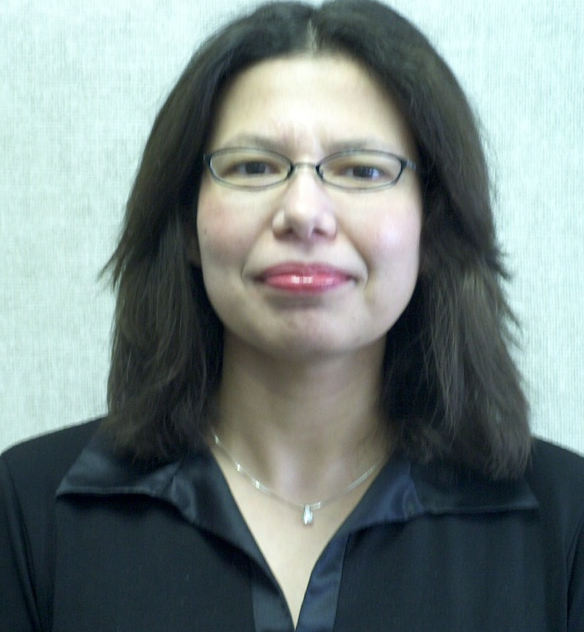 Karen Villaverde
Karen Villaverde
www.cs.nmsu.edu/
~kvillave
|
 Vladik Kreinovich
Vladik Kreinovich
www.cs.utep.edu/vladik
|
|
Contact: Vladik Kreinovich (vladik 'at' utep.edu), Karen Villaverde (kvillave 'at' cs.nmsu.edu)
|
back
Models and Methods of Optimization and Decision Making in Fuzzy Environment and Their Applications
| The objective of the session is to gather together scientists, engineers, students, and practitioners working in the field of optimization and decision making in a fuzzy environment to generate discussion and exchange on their recent research results related to the consideration of uncertainty and multicriteria factors in diverse classes of optimization and decision making problems. Topics: Fuzzy mathematical programming,
Comparison of alternatives in a fuzzy environment,
Optimization problems with fuzzy coefficients,
Multiobjective decision making in a fuzzy environment,
Fuzzy models and methods for group multicriteria decision making,
Methods of evaluating consequences of decisions made, including their risks,
Applications of models and methods of optimization and decision making in fuzzy environment.
|
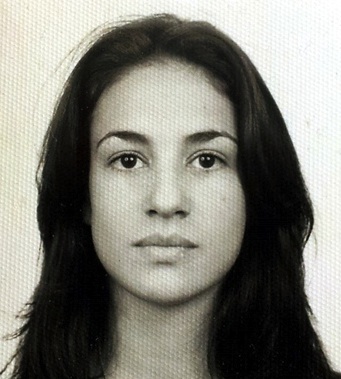 Dr. Roberta Parreiras
Dr. Roberta Parreiras
http://lattes.cnpq.br/
8012375798075112
|
 Dr. Illya Kokshenev
Dr. Illya Kokshenev
http://lattes.cnpq.br/
5162222440727352
|
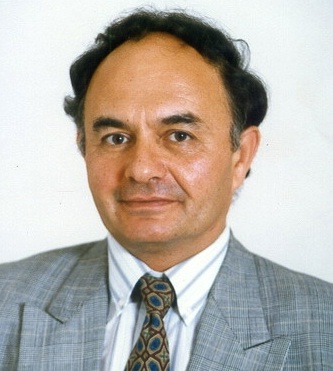 Prof. Petr Ekel
Prof. Petr Ekel
http://lattes.cnpq.br/
3564652725974759
|
|
Contact: Prof. Petr Ekel (ekel 'at' pucminas.br), Dr. Illya Kokshenev (illya 'at' aso-tech.com),
Dr. Roberta Parreiras (rop 'at' aso-tech.com)
|
back
Recommender and decision systems with soft computing
Decision systems research has significantly helped decision makers to compile useful information from either a combination of raw data, documents, and personal knowledge, or business models, to identify and solve problems and make decisions in many different fields such as management, operations, and planning. The advent of the Internet has introduced new areas of application of such as Recommender Systems, which is one of the most successful Internet-based decision systems for customer support of online shopping decisions, and for supplier support of online service recommendations.
The field of soft computing techniques is broadly recognized for its use in expert and control systems, and its application to decision support and recommendation systems is also very significant. Decision making and recommender models have been revisited, modified and optimized by the use of soft computing techniques to produce important novelties in both research, and their applications.
|
 Prof. Luis Martínez
Prof. Luis Martínez
|
 Prof. Jie Lu
Prof. Jie Lu
|
|
This invited session aims to provide an opportunity for researchers working in both research areas to discuss the theoretical and practical perspectives of adding soft techniques to decision and recommendation systems, including soft computing, in group decision support systems, in intelligent agents, and in online recommender systems. The session will also consider empirical studies that use soft computing techniques to add human aspects to decision systems, with various applications of these systems in e-commerce, e-business, e-learning and e-government.
|
|
Contact: Prof. Jie Lu (jie.lu 'at' uts.edu.au), Prof. Luis Martínez (martin 'at' ujaen.es)
|
back
Computing with words in decision making: Foundations, models and applications
| In many real decision situations defined under uncertain environments, with imprecise information, is straightforward the use of linguistic information due to the nature of different aspects of the decision problems. Computing with Words (CW) is a methodology that deals with words or sentences defined in a natural or artificial language instead of numbers, it emulates human cognitive processes to improve solving processes of problems dealing with uncertainty.
|
 Mrs. Rosa Rodríguez
Mrs. Rosa Rodríguez
|
 Prof. Luis Martínez
Prof. Luis Martínez
|
 Francisco Herrera
Francisco Herrera
|
|
Consequently, CW has been applied as computational basis to linguistic decision making, because it provides tools close to human beings reasoning processes related to decision making, which improve the resolution of decision making under uncertainty as linguistic decision making.
Both Decision Making and Computing with Words have recently attracted much attention in which, novel mathematical foundations and new decision models raised to be applied in different decision fields such as multi‐criteria decision making, decision analysis, evaluation processes, etc.
|
|
|
Contact: Francisco Herrera (herrera 'at' decsai.ugr.es), Prof. Luis Martínez (martin 'at' ujaen.es),
Mrs. Rosa Rodríguez (rmrodrig 'at' ujaen.es)
|
back
Fuzzy Techniques for Image Processing and Retrieval
The increasing availability of huge image collections on the Web is pressing need for the development of efficient techniques for the processing, the analysis, the indexing and the retrieval of image data. Fairly consolidated results were obtained in the area of content-based image retrieval (CBIR) aiming at indexing images with low-level content-based features. However CBIR applicability is hampered by the known problem of semantic gap, which is the gap between the low-level description of images and their semantic interpretation given by humans. Current research on image processing and retrieval is devoted to investigate how to fill the semantic gap, which still poses many challenges and open problems. Among these, the difficulty of users to express their requests in the form of well defined queries, the need of effective methods for the extraction of relevant as well concise features from images, the definition of flexible similarity measures for object matching, the automatic annotation of visual contents with semantic concepts. All these challenges can be addressed with the help of fuzzy techniques, which may provide efficient tools for image processing as well as convenient mechanisms for both content- based and concept-based image retrieval.
|
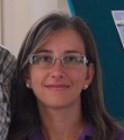 Maria Alessandra Torsello
Maria Alessandra Torsello
www.cilab.di.uniba.it/
index.php/people/maria-alessandra-torsello/biography-torsello
|
 Giovanna Castellano
Giovanna Castellano
www.cilab.di.uniba.it/
index.php/people/
giovanna-castellano/biography-castellano
|
|
The session will focus on the exploration of the fundamental roles as well as practical impacts of fuzzy techniques in the field of image processing and retrieval. Possible topics include (but are not limited to): fuzzy modeling of image data; fuzzy similarity measures for object matching; fuzzy techniques for image annotation; fuzzy techniques for low-level image processing; fuzzy techniques for high-level image analysis; fuzzy clustering of image data; fuzzy image retrieval models.
|
|
Contact: Giovanna Castellano (castellano 'at' di.uniba.it), Maria Alessandra Torsello (torsello 'at' di.uniba.it)
|
back
Fuzzy Logic Applications in Construction Engineering and Management
| Construction engineering and management research has seen significant growth in fuzzy logic applications to solve numerous problems. Fuzzy logic has been used to model subjective uncertainty in construction and address the lack of comprehensive data sets available for modeling. In the construction domain, fuzzy logic has been combined with other techniques, such as simulation, genetic algorithms, and artificial neural networks to create hybrid systems. This session will focus on recent applications of fuzzy logic and fuzzy hybrid techniques for applications related to planning and scheduling, estimating and bidding, productivity, project control, structuring projects, process improvement, risk analysis, and others. In particular, challenges related to applying fuzzy logic in the construction domain will be discussed and ideas generated on how to adapt fuzzy logic and fuzzy hybrid techniques to better suit construction applications.
|
 Prof. Aminah Robinson Fayek
Prof. Aminah Robinson Fayek
www.strategic-construction.ualberta.ca
|
|
Contact: Prof. Aminah Robinson Fayek (aminah.robinson 'at' ualberta.ca)
|
back
Contact: Alireza Sadeghian (asadeghi 'at' ryerson.ca)
Antonello Rizzi (antonello.rizzi 'at' uniroma1.it)
Hooman Tahayori (htahayor 'at' scs.ryerson.ca)
Lorenzo Livi (livi 'at' diet.uniroma1.it)
back
Computational Intelligence Techniques for Smart Grids Control and Management
The limited availability of energy resources related to environmental and economic factors has made a radical change in the way of understanding the distribution and consumption of energy. This new environment will lead to critical challenges to electric energy security, reliability, and sustainability in smart grids and micro-grids contexts. This focused session will elaborate on the applications of computational intelligence (CI) in planning, implementation, management, control, and optimization of smart grids and micro-grids with the aim of improving the electric energy security, reliability, and sustainability, as well as the efficiency.
The topics covered in this focus session - but not limited to:
• Computational Intelligence algorithms for smart grids control and optimization
• Pattern recognition system design in smart grids
• Condition monitoring, fault diagnostics, and prognostics
• Load/price forecasting and power marketing
• Power system stability and control
• Security issues in smart grids
• Micro-grid modeling, dynamics, and hierarchical control
• Battery management issues.
|
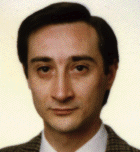 Antonello Rizzi
Antonello Rizzi
|
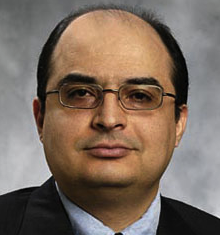 Alireza Sadeghian
Alireza Sadeghian
|
 Fabio Massimo
Fabio Massimo
Frattale Mascioli
|
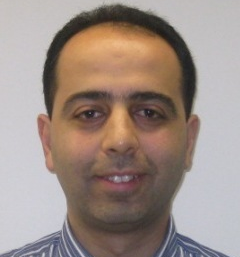 Hooman Tahayori
Hooman Tahayori
|
|
Contact: Alireza Sadeghian (asadeghi 'at' ryerson.ca)
Antonello Rizzi (antonello.rizzi 'at' uniroma1.it)
Hooman Tahayori (htahayor 'at' scs.ryerson.ca)
Fabio Massimo Frattale Mascioli (mascioli 'at' infocom.uniroma1.it)
back
Contact: Enrique Herrera-Viedma (viedma 'at' decsai.ugr.es)
Francisco Chiclana (chiclana 'at' dmu.ac.uk)
Francisco Javier Cabrerizo (cabrerizo 'at' issi.uned.es)
Ignacio Javier Pérez (ignaciojavier.perez 'at' uca.es)
back
Soft approaches to Web Information Retrieval
| Subjectivity, vagueness, and imprecision are typical properties of any information access activity on the Web. The fuzzy logic and soft computing tools are very appropriate to deal with imprecision, vagueness, partial truth, and approximation. With such tools it is possible to define flexible approaches to improve personalized information access processes on the Web. The use of both fuzzy and soft computing tools can contribute satisfactorily to solve the different problems recently appeared in the Web.
|
 Jose Angel Olivas
Jose Angel Olivas
|
 Vincenzo Loia
Vincenzo Loia
|
 Enrique Herrera-Viedma
Enrique Herrera-Viedma
|
|
The objective of the special session is to provide an opportunity to exchange ideas on the application of fuzzy logic and soft computing in the design of flexible approaches to information access on the Web. The special session aims at providing a forum for the discussion of recent advances in this research field and to offer an opportunity for researchers and practitioners to identify new promising research directions.
The organizers welcome contributions that report on the application of fuzzy and soft computing tools within the fields of (but not limited to)
• Information retrieval systems
• Information filtering systems
• Recommendation systems
• Web 2.0 applications
• Digital libraries
• Web quality evaluation
• Hypermedia information systems
• Text categorization on the Web
• Emotion and sentiment analysis on the Web
• Web related technologies in data representation and querying
where the information retrieval and information access processes are modelled and/or managed using fuzzy and soft computing techniques and their hybridizations.
|
|
|
Contact: Enrique Herrera-Viedma (viedma 'at' decsai.ugr.es)
Vincenzo Loia (loia 'at' unisa.it)
Jose Angel Olivas (JoseAngel.Olivas 'at' uclm.es)
|
back
Fuzzy Pattern Recognition
| Pattern recognition is a collection of computer techniques, which aims to find the regularities in data or observations. In another view, the main task in Pattern recognition is to impose identity on observations such as attributes of an object, symptoms of patients, speech, or images. Communicating with computing machines in human like communicationand designing and making intelligent machines are among the most important motivations of developing thousands of algorithms in this area.
|
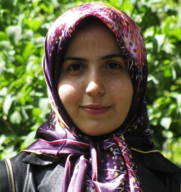 M. Zarinbal
M. Zarinbal
|
 I. Burhan Turksen
I. Burhan Turksen
|
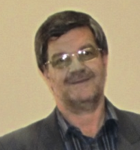 Mohammad H. Fazel Zarandi
Mohammad H. Fazel Zarandi
|
|
However, uncertainty and imprecision are the most important aspects of the real world problems that could be modeled using fuzzy logic. Using fuzzy pattern recognition techniques would give more flexibility to handle the uncertainties in real applications such as decision-making, financial forecasting, time series, image and signal processing, speech recognition, etc.
Regarding the booming interest in fuzzy pattern recognition techniques,this special session looks to gather and discuss the latest theoretical and application achievements in analyzing, designing and applying fuzzy pattern recognition techniques. Potential topics include, but not limited to:
• Machine Learning
• Robotics
• Fuzzy support vectors
• Fuzzy evolutionary methods
• Fuzzy classification and clustering techniques
• Type-2 Fuzzy classification and clustering techniques
• Fuzzy rule-base generation via indirect approaches
• Real-world case studies of pattern recognition in Economics, Engineering, Medicine, Image Analysis and Computer Vision, etc.
|
|
|
Contact: Mohammad H. Fazel Zarandi (zarandi 'at' aut.ac.ir) I. Burhan Turksen (bturksen 'at' etu.edu.tr)
M. Zarinbal (mzarinbal 'at' aut.ac.ir)
|
back
Fuzzy Intelligent Agent Systems
| By the advent of intelligent agent systems, decision making has been facilitated because Intelligent Agents are capable of performing repetitive tasks and solving sophisticated problems. Hence, there is an increasing need to do more research in the area of Intelligent Agents for handling the more complex systems in today’s competitive business. In such intricate systems, the environment that systems have to adapt with is changing.
|
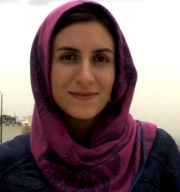 Reyhaneh Gamasaee
Reyhaneh Gamasaee
|
 I. Burhan Turksen
I. Burhan Turksen
|
 Mohammad H. Fazel Zarandi
Mohammad H. Fazel Zarandi
|
|
Therefore, considering uncertainty is essential in Intelligent Agent systems, and fuzzy theory is applied to handle the degree of uncertainty which intelligent agents encounter. Regarding to the increasing need for developing Fuzzy Intelligent Agents to manage complex systems, this session welcomes the researchers and papers in the area of theory and applications of Fuzzy Intelligent Agents.
The topics of this session include but are not limited to the following areas:
• Fuzzy Intelligent Agents for Transportation systems
• Fuzzy Intelligent Agents for Supply chains
• Fuzzy Intelligent Agents for Manufacturing Systems
• Application of Fuzzy Intelligent Agents in Data mining and information retrieval
• Application of Fuzzy Intelligent Agents in Marketing
• Personal assistance application
• Intelligent interfaces
• Intelligent tutoring systems
• Fuzzy Intelligent Agents for Games and Computer Go
• Semantic Web Agents
• Mobile Agents
|
|
|
Contact: Mohammad H. Fazel Zarandi (zarandi 'at' aut.ac.ir) I. Burhan Turksen (bturksen 'at' etu.edu.tr)
Reyhaneh Gamasaee (Gamasaee 'at' aut.ac.ir))
|
back
Contact: Professor Bob John (rij 'at' dmu.ac.uk) Professor Francisco Chiclana (chiclana 'at' dmu.ac.uk) Dr Simon Coupland (simonc 'at' dmu.ac.uk) Professor Enrique Herrera-Viedma (viedma 'at' decsai.ugr.es)
back
Fuzzy Logic in Economics and Social Sciences
Real life is considered too complex to be described in a simplistic formal model and the idea that reality is not always ‘‘quantitative’’ should suggest that non-quantitative schemas might be more reliable for decision-making.
Thanks to the strong development of theories involving soft computing areas, an increasing contact is born between the engineering world and others like economics, social sciences, environment, decision making and so on.
These new fields of research need to be capable of integrating qualitative and quantitative analysis, so a possible model which describes the real problem is not forced to limit its scope to numerical variables but can handle any type of qualitative drivers which is an impossible task for standard mathematical theories.
|
 Rudolf Seising
Rudolf Seising
|
 Gisella Facchinetti
Gisella Facchinetti
|
|
In this focus session we will present papers dealing with the use fuzzy logic to describe or model phenomena in non-technological areas of life. Applications of fuzzy concepts and methods to, medicine, economics, sociology, psychology, philosophy, linguistics, art, etc. are also welcome.
|
|
Contact: Gisella Facchinetti (gisella.facchinetti 'at' unisalento.it) Rudolf Seising (Rudolf.Seising 'at' softcomputing.es)
|
back
Soft Computing in Science and Technology Studies
In the last (almost) 50 years the theory of fuzzy sets has been used and applied in many fields of science and technology. Since some time there is also a movement to use this non-classical mathematical tool to model non-technical academic fields.
Science and Technology Studies is a young academic field devoted to investigate and analyze scientific knowledge and technology in its social context. Philosophers, historians, sociologists and psychologists of science reflect about activities and normative issues, scientist?s behavior and how that fits in our social relationships.
|
 Rudolf Seising
Rudolf Seising
|
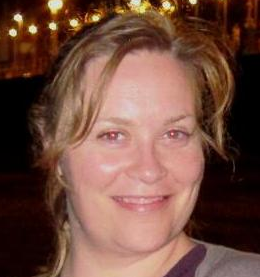 Veronica Sanz
Veronica Sanz
|
|
In this focus session we will accept papers dealing with the use of scientific methodologies of Soft Computing to describe or model phenomena of philosophical and social aspects of science and technology but also theoretical and philosophical reflections on the role of Soft Computing in society and culture at a general level.
|
|
Contact: Veronica Sanz (veronica.sanz 'at' berkeley.edu) Rudolf Seising (Rudolf.Seising 'at' softcomputing.es)
|
back
Computational Intelligence for Sustainable Computing
Sustainable Computing is an emerging research area that concerns approaches to computing hardware and software with sustainable long-term operational costs from business, environment and societal perspectives. It includes the concepts of energy-efficient computing and green computing.
The main goal of Sustainable Computing is to make the world a sustainable place by raising awareness of sustainable computing best practices so as, e.g., to decrease energy consumption, to reduce the total environmental impact, to better integrate information technology in everyday life devices and activities, etc.
The need to transform the world into a really sustainable place makes Computational Intelligence techniques, including artificial neural networks, fuzzy systems, and evolutionary computation, a valuable means to help designers and operators deal with all issues related to the sustainable use of information technologies in such areas as power, energy, temperature, waste, and environment.
This session aims to provide a forum for researchers and practitioners to present and discuss intelligent approaches to sustainable computing and to identify new research challenges.
Topics of interest include, but are not limited to:
• Power-aware applications,
• Sustainable hardware platforms and devices,
• Use of smart sensors for environmental monitoring,
• Resource management to optimize performance and power,
• Algorithms for reduced power, energy and heat,
• Green and renewable energy,
• Software for energy efficiency and management,
• smart energy systems,
• smart grids,
• smart metering.
|
 Pietro Ducange
Pietro Ducange
|
 Marco Cococcioni
Marco Cococcioni
|
 Francesco Marcelloni
Francesco Marcelloni
|
 Beatrice Lazzerini
Beatrice Lazzerini
|
|
Contact: Marco Cococcioni (m.cococcioni 'at' iet.unipi.it) Pietro Ducange (p.ducange 'at' iet.unipi.it)
Beatrice Lazzerini (b.lazzerini 'at' iet.unipi.it) Francesco Marcelloni (f.marcelloni 'at' iet.unipi.it)
back
Contact: Petr Musilek (Petr.Musilek 'at' ualberta.ca) Ajith Abraham (ajith.abraham 'at' ieee.org)
Vilém Novák (vilem.novak 'at' osu.cz) Václav Snášel (vaclav.snasel 'at' vsb.cz)
back
Fuzziness and Medicine
Zadeh’s fuzzy sets and systems have been applied for more than 40 years in different fields of medical research. Today, fuzzy concepts are used to construct knowledge-based systems in medicine, particularly to support medical diagnosis and decision-making.
For more than 30 years the nature of” health”, “illness”, and “disease” and the meaning of these notions have been discussed in philosophy of medicine. Sadegh-Zadeh has demonstrated that these concepts ‘‘are not amenable to classical logic”, and he adopted a fuzzy-theory approach to postulate a novel theory of these concepts: ‘‘health is a matter of degree, illness is a matter of degree, and disease is a matter of degree’’.
|
 Christian Schuh
Christian Schuh
|
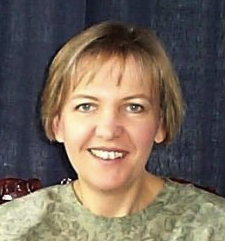 Mila Kwiatkowska
Mila Kwiatkowska
|
 Rudolf Seising
Rudolf Seising
|
|
In this focus session we will accept papers that deal with the concept of fuzziness in medicine, i.e. medical philosophy and medical applications.
|
|
|
Contact: Rudolf Seising (Rudolf.Seising 'at' softcomputing.es) Mila Kwiatkowska (Mkwiatkowska 'at' tru.ca)
Christian Schuh (Christian.schuh 'at' meduniwien.ac.at)
|
back
Computing with Approximations: Theory and Practice
| The methods for computing with approximations create the core of many methodologies developed for handling massive data, imprecise information and incomplete knowledge. They include both the models of approximate representation of complex concepts and the methods for learning how to combine such representations within larger schemes reflecting real-world phenomena.
|
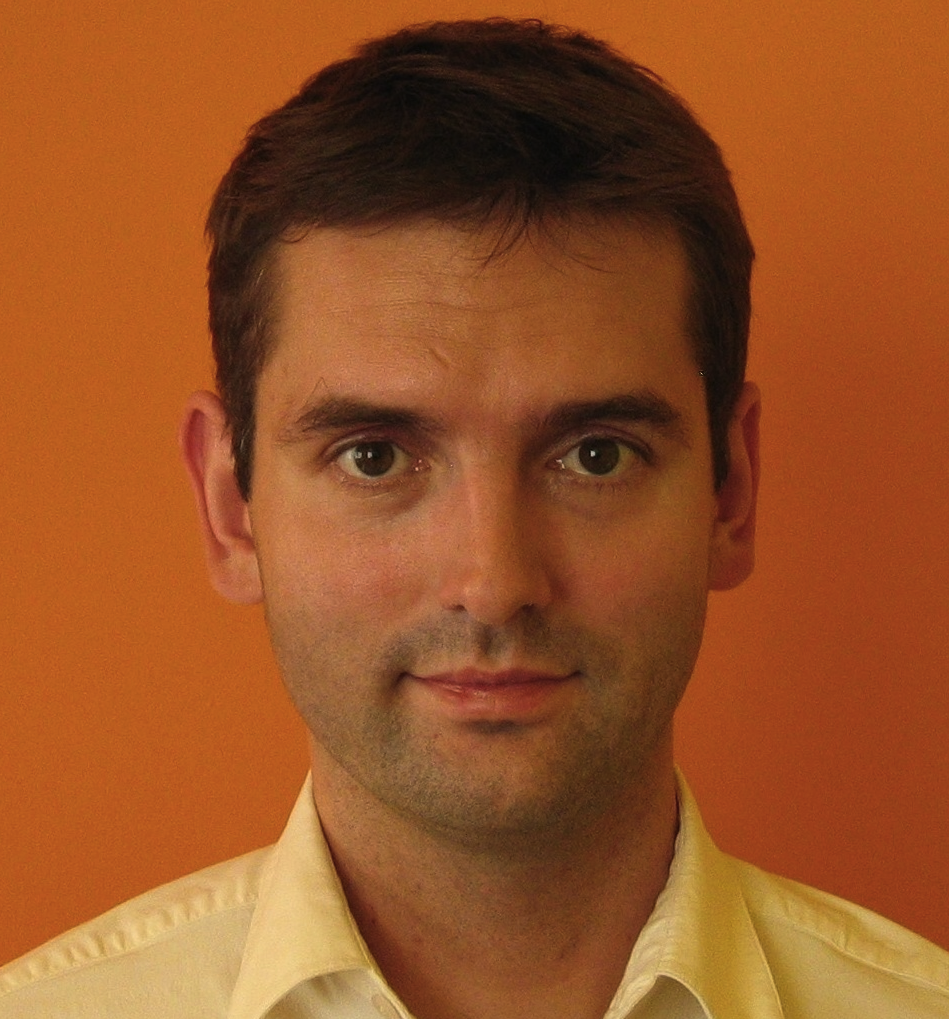 Dominik Slezak
Dominik Slezak
|
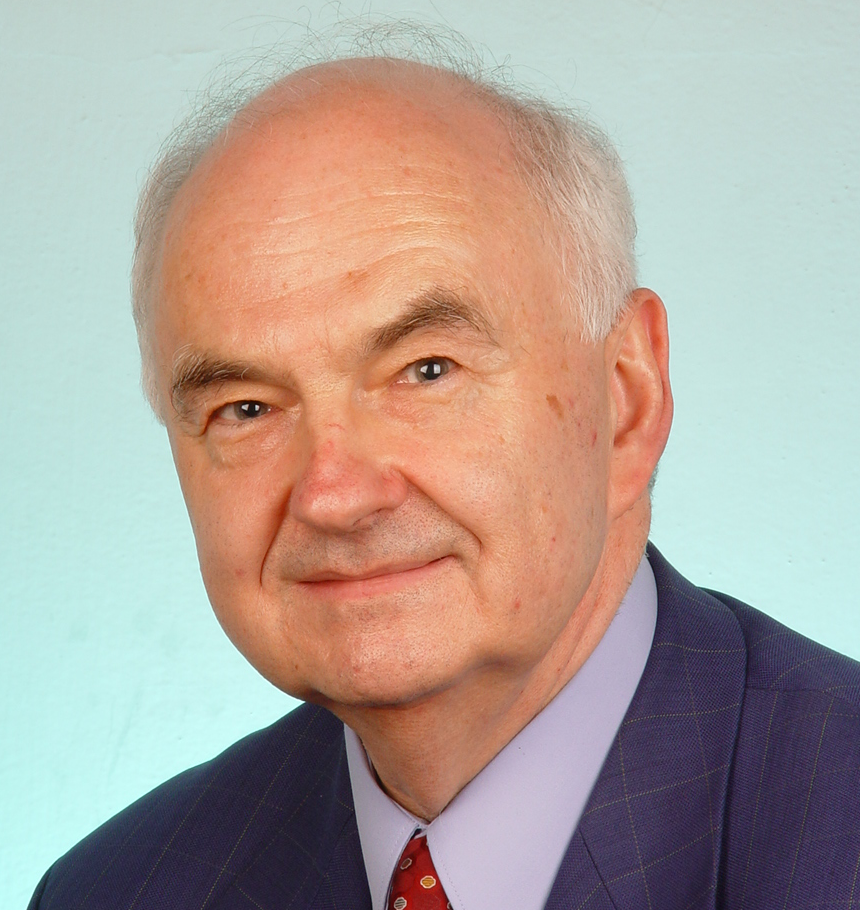 Janusz Kacprzyk
Janusz Kacprzyk
|
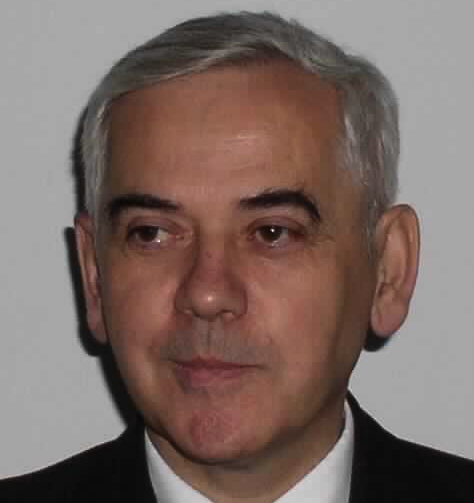 Andrzej Skowron
Andrzej Skowron
|
|
In this session, we would like to focus on the set-based approximate representations, such as fuzzy sets, rough sets, near sets etc., as well as their relationships to the methods of approximate reasoning and computing, such as interval computing, granular computing, and others. We would also like to encourage papers discussing how to take an advantage of the available domain knowledge while designing approximate representation and computation models.
Our session is inspired by the panel discussion on the same topic, held at the FedCSIS 2012 conference in Wroclaw, Poland (http://2012.fedcsis.org/node/215), where - besides an overview of applications of the methods for computing with approximations in the areas such as bio-medicine, economy, multimedia, business intelligence, knowledge discovery, semantic search, risk management, algorithmic trading and analytics of machine-generated data sets - we referred to the foundations of the considered approaches in order to provide a background for evaluating their usefulness in real world. At IFSA 2013, we would like to keep the same balance between the theory and practice. We also intend to invite the authors who contribute to our focus session to include their extended papers into an edited book on computing with approximations.
|
|
|
Contact: Andrzej Skowron (skowron ‘at’ mimuw.edu.pl) Janusz Kacprzyk (kacprzyk ‘at’ ibspan.waw.pl)
Dominik Slezak (slezak ‘at’ mimuw.edu.pl)
|
back
Contact: Humberto Bustince (bustince 'at' unavarra.es) Radko Mesiar (mesiar 'at' math.sk)
Javier Montero (monty 'at' mat.ucm.es) Daniel Gómez (dagomez 'at' estad.ucm.es)
back
Complex Fuzzy Sets and Logic
| Complex fuzzy sets are an extension to type-1 fuzzy sets in which membership grades can be any complex number with a modulus ≤ 1. Likewise, complex fuzzy logic is an isomorphic family of multi-valued logics whose truth values are complex numbers with modulus ≤ 1. In the ten years since these concepts were first proposed, further theoretical investigations and a number of applications have made complex fuzzy sets and logic a lively and growing research area. This special session will provide a forum to consolidate the community of researchers in this area, share our current ideas, reflect on future directions, and communicate our ideas and vision to the larger Computational Intelligence community. As such, we welcome submissions on all aspects of complex fuzzy sets or complex fuzzy logic, including but not limited to:
|
 Scott Dick
Scott Dick
|
|
• Theory of complex fuzzy logic
• Complex fuzzy sets
• Complex fuzzy inferential systems
• Elicitation of complex fuzzy rules
• Machine learning for complex fuzzy inferential systems
• Hybridizations of complex fuzzy sets and logic with other CI technologies
• Data mining with complex fuzzy sets and logic
• Applications of complex fuzzy sets and logic
• Complex fuzzy logic hardware
|
|
Contact: Scott Dick (dick 'at' ece.ualberta.ca)
|
back
Type-2 Fuzzy Logic Control Systems
| Fuzzy control is one of the most active and fruitful fields in fuzzy systems and technology since its birth in 1974. There have been many successful real-world fuzzy control applications as evidenced by a countless number of products embedded with fuzzy control available on the market. Numerous techniques have been developed in literature for analyzing and designing a wide variety of fuzzy control systems of both the Mamdani type and the TSK type. They are mostly for the T1 fuzzy controllers at this point, but type-2 fuzzy control system research is gaining more and more of the community’s attention because of its importance as well as some interesting and challenging technical issues such as why a type-2 fuzzy controller can outperform its type-1 counterpart under certain conditions and what the conditions are.
|
 Professor Hao Ying
Professor Hao Ying
|
 Professor Jerry M. Mendel
Professor Jerry M. Mendel
|
|
|
|
Contact: Professor Jerry M. Mendel (mendel ‘at’ sipi.usc.edu), Professor Hao Ying (hao.ying ’at’ wayne.edu)
|
back
Fuzzy Differential Equations
The study of differential equations is a wide field in many areas of science and plays a prominent role in many disciplines. Traditional differential equation deals with finding an unknown deterministic relation of one or several crisp variables that relates the values of the function itself and its derivatives of various orders. There is, however, a large class of systems in which the variables are not necessarily crisp and convey some level of vagueness and uncertainty. Accordingly, their dynamic behavior can be fundamentally differed from those observed in classical systems. Inability to include the aspect of uncertainty in a continuous time dynamic framework is one of main issues of modeling such mentioned systems using differential equations. Fuzzy differential equation theory addresses this issue by the generalization of traditional differential equation based on fuzzy logic. This focus session will feature some of the latest advancements in the set- valued differential equation field mainly fuzzy differential equation in both aspects theory and application.
|
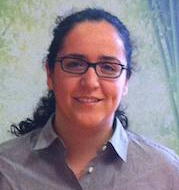 Dr. Narsis Aftab Kiani
Dr. Narsis Aftab Kiani
|
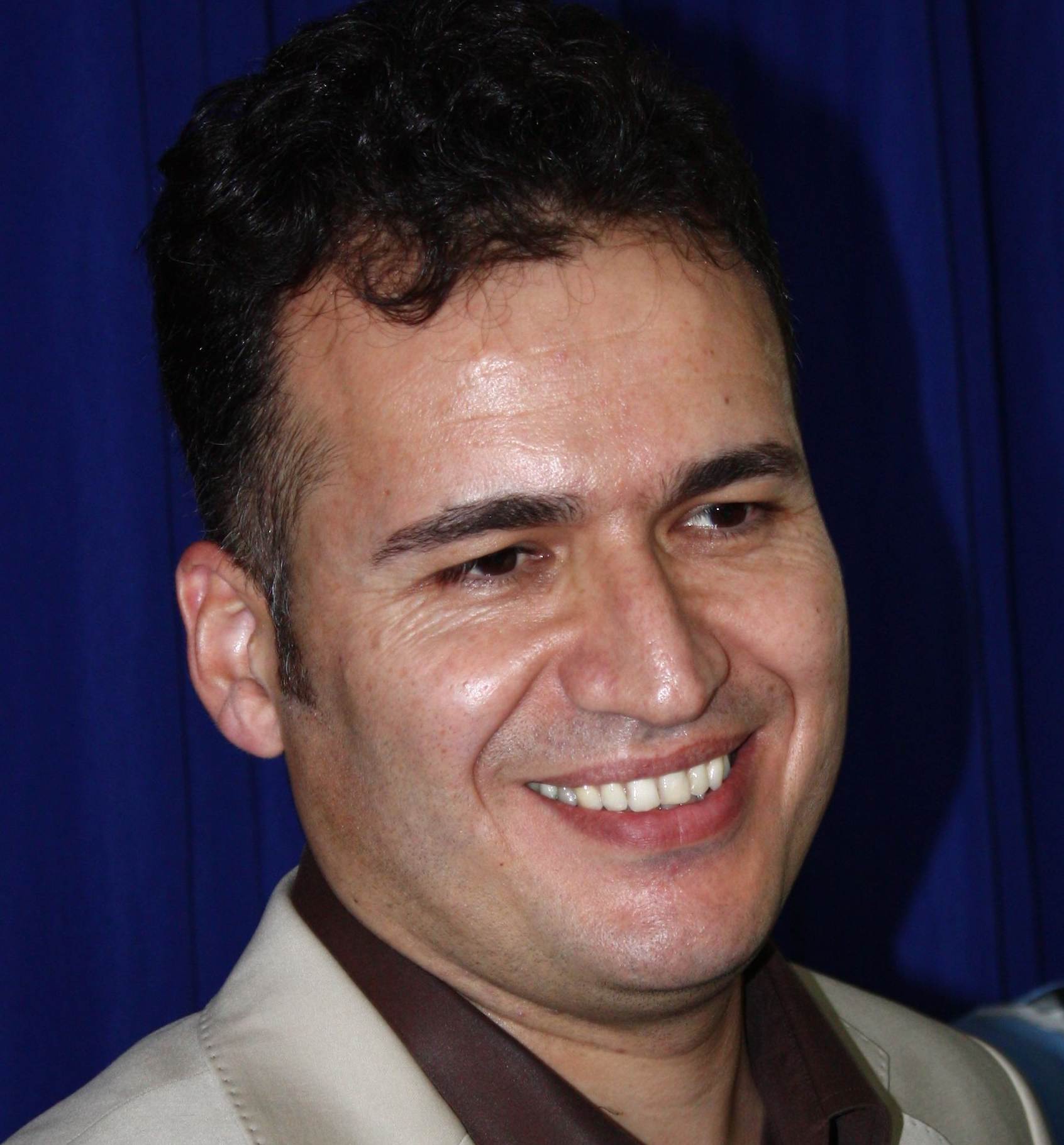 Prof. Dr. Tofigh Allahviranloo
Prof. Dr. Tofigh Allahviranloo
|
|
We welcome submissions on all aspects of set- valued differential equation, including but not limited to:
• Fuzzy non-fractional differential equations
• Fuzzy fractional differential equations
• Stochastic set-valued differential systems with error analysis
• Numerical simulations and computational aspects
• Applications to the real world problems
• Existence, uniqueness and stability of solutions
|
|
Contact: Prof. Dr. Tofigh Allahviranloo (tofigh 'at' allahviranloo.com, )
Dr. Narsis Aftab Kiani (Narsis.kiani 'at' bioquant.uni-Heidelberg.de)
|
back
Prediction with Social Networks: Role of Fuzzy and Soft Computing Agents
| Web 2.0 technologies have raised the profile of social networks and social network analysis. With a computational perspective, broader semantics have been envisaged for social networks. Considering a social network at its most basic level as a graph, there are diverse strategies for social network analysis including centrality analysis, community detection, position and role analysis, network modelling, and information diffusion.
|
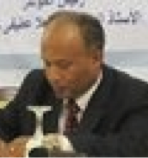 Aboul Ella Hassanien
Aboul Ella Hassanien
|
 Daryl Hepting
Daryl Hepting
|
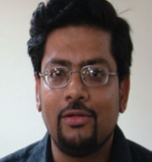 Soumya Banerjee
Soumya Banerjee
|
|
Social networking and graph mining are applied in combination in prediction mechanisms for online communities, how they react now and how they could be augmented in the near future. Micro-blogging services such as twitter, which demonstrate manifold distributions, could be part of such a graph structure. The challenges of social graphs are that they are random, uncertain and non-deterministic in nature. Fuzzy Sets, Rough Sets, Near Sets, Tutte Polynomials, differential evolution and other soft or hybrid metaheuristics may yield better results while analyzing contemporary networks stemming from instant messaging, mobile calls, friends’ co-authorships or citations, and more traditional networks found in biology, metabolic pathways, genetic regulation and food webs.
The organizers welcome contributions that report on the application of fuzzy and soft computing tools within the fields of social network analysis, including but not limited to:
• Community discovery and analysis in large scale online and offline social networks,
• Personalization for search and for social interaction
• Role of fuzzy-logic social recommendation and choice-based systems
• Link prediction
• Multi-objective detection in social networks
• Web-mining algorithms for social streamed data
• Social graph pattern presentation and graph mining
• Evolution of patterns under social networks
• Social opinion mining and sentiment analysis
• Dynamics and evolution patterns of social networks, trend prediction
• Social blog analysis using soft computing tools
• Temporal analysis on social networks topologies
• Search algorithms on social networks
• Machine learning ofprivacy preferences insocial networks
• Learning in social networks with soft computing agents
|
|
|
Contact: Soumya Banerjee (dr.soumya ‘at’ ieee.org) Daryl Hepting (hepting ‘at’ cs.uregina.ca)
Aboul Ella Hassanien (aboitcairo ‘at’ gmail.com),
|
back
Knowledge and Uncertainty in Big Data
What is Big Data? It will not have a precise answer for a long time to come. Currently, people believe it refers to technologies that utilize the principles such as Hadoop and Very Large Databases. But from the foundational point of view, Big Data seems to be a natural domain for knowledge and uncertainty management.
What are the important theoretical characteristics of Big Data? In one hand it is “TOO BIG”, yet in the other hand it is “small enough”. It is referring to computationally intractable data, yet there are some tractable finitary descriptions. We believe many current novel knowledge engineering and uncertainty paradigms, such as computing with words / decision logic (rough sets), granular / grid / cloud computing, Petry nets / distributed computing (alphabetical order) are appropriate concepts / intuitions to capture such “small enough” descriptions of “TOO BIG” data.
|
 Dominik Slezak
Dominik Slezak
(RS Society)
|
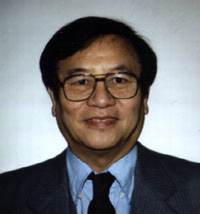 T. Y. Lin
T. Y. Lin
(GrC Society)
|
|
In this session, we will advocate possibilities for applying novel paradigms in knowledge and uncertainty managements to Big Data. We are inviting the communities of AI, databases / data mining, fuzzy / rough / soft sets, granular / grid / cloud computing, web informatics / mining etc., to present their views on Big Data in this session. We welcome both theoretical and practical papers, with a focus on both short term and long term vision.
The topics of this session include but are not limited to the following areas:
• Models of Big Data, e.g., with regard to finitary descriptions of infinite sets.
• Granular computing for Big Data, including extensions of Turing machines, function spaces etc.
• Rough / fuzzy /soft set representations for Big Data and infinite data.
• Granulation and approximate computations over Big Data.
|
|
Contact: T. Y. Lin (tylin@cs.sjsu.edu) Dominik Slezak (slezak@mimuw.edu.pl)
|
back
Advances in Granular Computing and Advances in Rough Sets
| Granular computing is an emerging interdisciplinary study of thinking, problem solving and information processing at multiple levels of granularity. Rough sets offer an elegant theory and effective method of granular computing for data analysis. The joint workshop on Advances in Granular Computing (AGC 2013) and Advances in Rough Sets (ARS 2013), following the success of Advances in Granular Computing in 2012 and 2011, aims at bringing researchers and practitioners from many wide spectrum of disciplines and research areas to exchange latest ideas and to envision the future of granular computing and rough sets.
|
 Yiyu Yao
Yiyu Yao
|
 JingTao Yao
JingTao Yao
|
|
As part of the 2013 IFSA World Congress and NAFIPS Annual Meeting, participants of the joint workshop have an excellent opportunity to interact with other researchers regarding granular computing, rough sets, fuzzy sets, and related computational paradigms.
Workshop homepage:
http://rskt.cs.uregina.ca/AGC13/
|
|
Contact: JingTao Yao (jtyao 'at' cs.uregina.ca) Yiyu Yao (yyao 'at' cs.uregina.ca)
|
back
Contact: Janusz Kacprzyk (kacprzyk ‘at’ ibspan.waw.pl) Guy De Tre (Guy.DeTre 'at' telin.ugent.be)
Wladyslaw Homenda (homenda 'at' mini.pw.edu.pl) Slawomir Zadrozny (zadrozny 'at ibspan.waw.pl)
back
